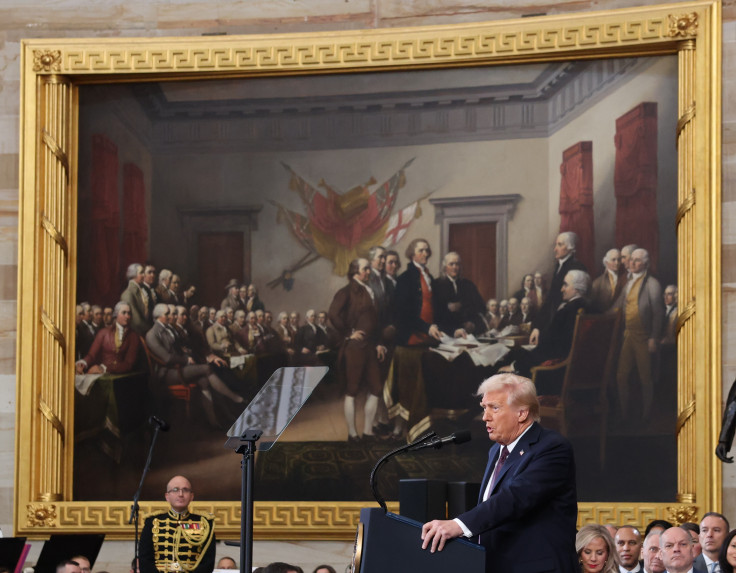
Donald Trump took the oath of office Monday at the Capitol Rotunda, officially becoming the 47th President of the United States. As he makes his move back to the White House, he is set to begin his immigration crackdown right away. Just minutes after he took office, the effects of his administration were already being felt for migrants across the country, as the app used by many to legally request asylum in the country, CBP One, was immediately shut down, leaving those with appointments in limbo.
"Illegal entry will immediately be halted, and we will begin the process of returning millions and millions of criminal aliens back to the places from which they came," Trump said in his inaugural address. Later in the day he signed a flurry of executive orders, including declaring a national emergency at the southern border.
Carmen Feliciano, Vice President of Policy and Advocacy at UnidosUS, the nation's largest Latino advocacy organization, points out that Latinos who voted for Trump prioritized the economy and immigration during the 2024 presidential election, two issues the Republican had a comfortable edge in. She is worried that the rhetoric and announced plans will do little to honor what voters asked for.
"It's concerning, because [Trump's inaugural address] spoke to what is his intention, and what's gonna be the breadth of his actions," Feliciano told The Latin Times. "We are going to oppose at Unidos, as a Latino organization, any overreach or abuse of power that impacts our community and impacts the nation, and also violates constitutional rights."
Feliciano continued by denouncing some of Trump's proposed plans, instead highlighting what UnidosUS calls a "balanced approach" to immigration. In it, they propose firm and enforceable rules to the border, giving migrants a fair shot at entering the U.S. legally, and investing in cruelty-free immigration policies within the U.S. borders.
"If you look at the Latino community, a lot of the Latinos do support having immigration reform, and we do support having safe communities, and not having people who are a danger to national security committing crimes here, among other things," Feliciano said. "...But the concern from what we heard so far is that [Trump's immigration policies] doesn't sound like it's a balanced approach to immigration, which is what our community voted for and would like to see."
The immigration advocate is advising Latinos and immigrants to stay informed on the latest developments, know their rights, be prepared in the event that deportation raids escalate and hold elected officials accountable for their actions.
"We are already in the process of supporting them and helping our communities prepare for what could happen, and particularly if they continue this rhetoric of mass deportation," Feliciano said. "Teaching them what are their rights, what they can do, and helping them also prepare in the long term in the event that they are deported."
© 2025 Latin Times. All rights reserved. Do not reproduce without permission.




